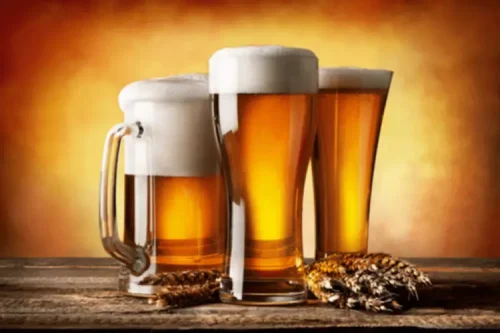
While it can be a peculiar and uncomfortable sensation, understanding the underlying causes can help individuals manage this reaction effectively. If sneezing or other allergic symptoms persist or worsen, seeking medical advice is advisable. Having an allergy to alcohol itself is very rare, but it is fairly common for people who have other allergies or asthma to see an increase in their symptoms when they drink alcoholic beverages. These substances can make your blood vessels dilate, which causes symptoms of alcohol intolerance.
Allergy vs. intolerance or sensitivity
If you think you have it, talk with your doctor and find out what’s causing it. In general, food sensitivities and intolerances are more common than food allergies. If you’re starting a new medication, it’s always a good idea to talk with your healthcare provider or pharmacist about how your medication can interact with alcohol. Aldehyde is toxic, and buildup is one of the key reasons people develop symptoms of a hangover.
How To Prevent Nasal Congestion After Drinking Alcohol
They work against the histamine that is producing the sneezing and runny nose. Allergic reactions can vary in intensity from person to person. It is possible for an allergic reaction to beer to worsen with repeated exposure, especially sneezing after drinking alcohol if the immune system becomes increasingly sensitized to certain ingredients. In some cases, sneezing after beer consumption might indicate an underlying health condition such as alcohol intolerance or an immune system disorder.
Alcohol allergy vs. alcohol intolerance
If your doctor prescribes an epinephrine auto-injector, you should carry it with you at all times. Then go to your nearest emergency department for follow-up care. If you develop symptoms after drinking alcohol, make an appointment with your doctor. Depending on your symptoms, they might refer you to an allergist for testing and treatment.
- As we now know, alcohol intolerance is an issue with metabolizing alcohol — not an overzealous immune system.
- True food allergies cause unpleasant symptoms such as hives, itching, swelling, stomach cramps, dizziness, vomiting and diarrhea.
- Sometimes beer allergy can be caused by a reaction to an ingredient in the beverage such as a chemical or a preservative.
- Alcohol increases your risk of breast cancer because it causes an increase in estrogen levels, and damages DNA, which can lead to the development of cancer cells.
- The different types depend on whether or not it’s caused by allergies.
Alcohol Intolerance vs. Allergy

These can include ensuring your furnace filters are clean, using air filters to reduce the amount of pollen in indoor air, and washing your linens in hot water to kill dust mites. Instead, they state that the data indicate that alcohol interacts with a component involving the body’s allergic response. Genuine alcohol allergies, in which people only react to the alcohol, are much less frequent. “It would be very difficult to prove that GMO-containing beers are more allergy- or sensitivity-inducing than GMO-free beers. Or that ‘organic’ beers are categorically superior just by being organic,” he says.

What Does it Mean If I Have Nasal Congestion After Drinking Alcohol?

When eating out, they should make a point of asking about ingredients to make sure they do not contain alcohol, because even a small amount can cause a reaction. However, only two of the 68 participants have a medically diagnosed allergy. This figure represents people whose symptoms are traceable to what the manufacturers made the product from and its production process, not the alcohol itself.
How to tell if you are allergic to alcohol itself
- But, if it happens after drinking, without any other weird lifestyle or dietary changes, there’s a high probability that the symptoms are linked to those wine spritzers.
- However, there are certain things you can do to keep your nose clear and free of extra mucus, which may help reduce sneezing after eating.
- Taylor notes that sometimes an alcohol intolerance is the result of genetics.






